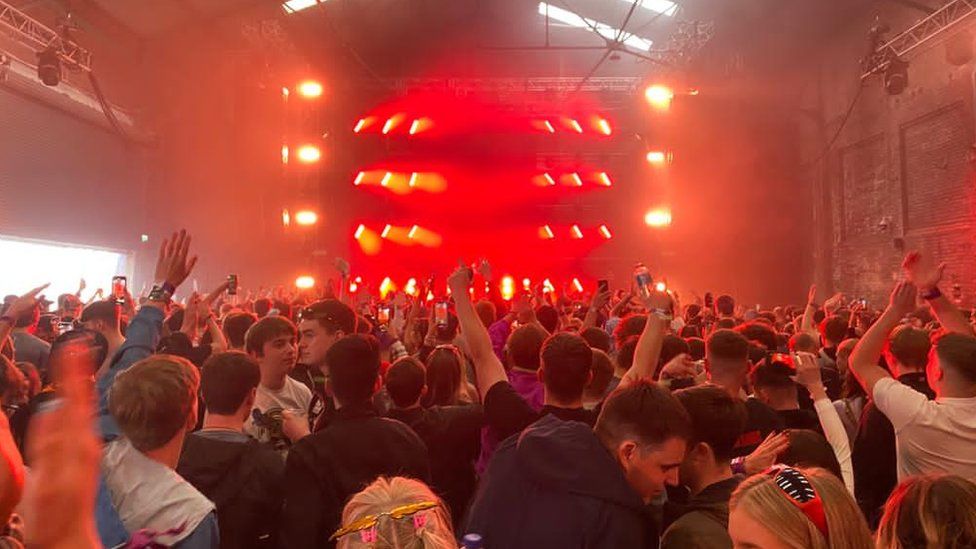No major outbreaks found at government mass pilot eventson June 25, 2021 at 3:51 pm
However, virus levels were low at the time and about a third of people returned tests afterwards.

Only 28 cases of Covid-19 were recorded after nine large-scale events studied to assess the impact on transmission of the virus, a government report says.
A total of just over 58,000 people went to the indoor and outdoor events but there were “no major outbreaks”.
At the time, virus levels were low and testing before and after events was also low, making conclusions difficult.
Pilot events included the FA Cup final, the Brit awards and two Circus nightclub dance nights in Liverpool.
The Events Research Programme was commissioned by the prime minister in February to test how mass gatherings could be held safely, and what measures would help reduce the risk of the virus spreading.
Scientists involved in the research said large indoor events could post “a higher potential risk of transmission” because of people being close to each other and poor ventilation.
But they said “pinch points”, where people were crowded together for a time, existed at both indoor and outdoor events.
They added that face coverings, restrictions on food and drink, testing, ventilation and social distancing could all be used to reduce the risk of transmission.
The report said no decisions had been taken on fully reopening mass events.
The government is due to set out its plans for this before 19 July – the current date for the final easing of lockdown restrictions in England.
- 17 April- 3 May: World Snooker Championship (10,147 participants) – six cases
- 18 April: FA Cup semi-final (2,728 participants)*
- 25 April: Carabao Cup final (7,737 participants)*
- 28 April: ACC business event, Liverpool (149 participants) – figures unavailable
- 30 April-1 May: Circus Nightclub dance nights (3,138 and 3,870 participants) – 10 cases
- 2 May: Sefton Park concert (6,101 participants) – two cases
- 11 May: The Brit awards (3,532 participants) – no cases
- 15 May: FA Cup final (18,720 participants)*
- 15 May: Reunion 5K Run (1,981 participants) – two cases
*There was a total of eight cases across these three football events.
All attendees were required to provide a negative lateral flow (rapid) test before they could enter the events.
They were also asked to take a voluntary PCR test (which is sent to a lab) before and after the event.
“Low uptake of PCR testing before and after events meant evidence of direct transmission at events was challenging to determine,” the report says.
Some 26-31% of attendees returned a PCR test after an event, but researchers said they also tested their close contacts and those of people who tested positive to find out more about potential spread.
Data on cases in the local populations who made up the audience at the events, such as Liverpool, were also studied.
But the report says the figure of 28 positive cases at events – 11 identified as potentially infectious and 17 as potentially infected at or around the time of an event – should be “interpreted with extreme caution”.
This is because of “relatively low levels of community prevalence of Covid-19 at the time of running the first phase of pilots” – and the spread of the now-dominant Delta variant could increase those figures, the report noted.
Prof Iain Buchan, public health expert from the University of Liverpool, who was involved in the study, said: “The single most important thing people can do is get vaccinated to make events happen”.
He said he had witnessed “an outbreak of joy rather than an outbreak of virus” at the events.
The next phase of the events research programme will include tennis’s Wimbledon Championships, golf’s Open Championship, the Goodwood Festival of Speed and the Latitude Festival.
Teams from the University of Liverpool, Loughborough University, University College London, the University of Edinburgh and Movement Strategies, a company that specialises in people movement and crowd dynamics, carried out the main research.
